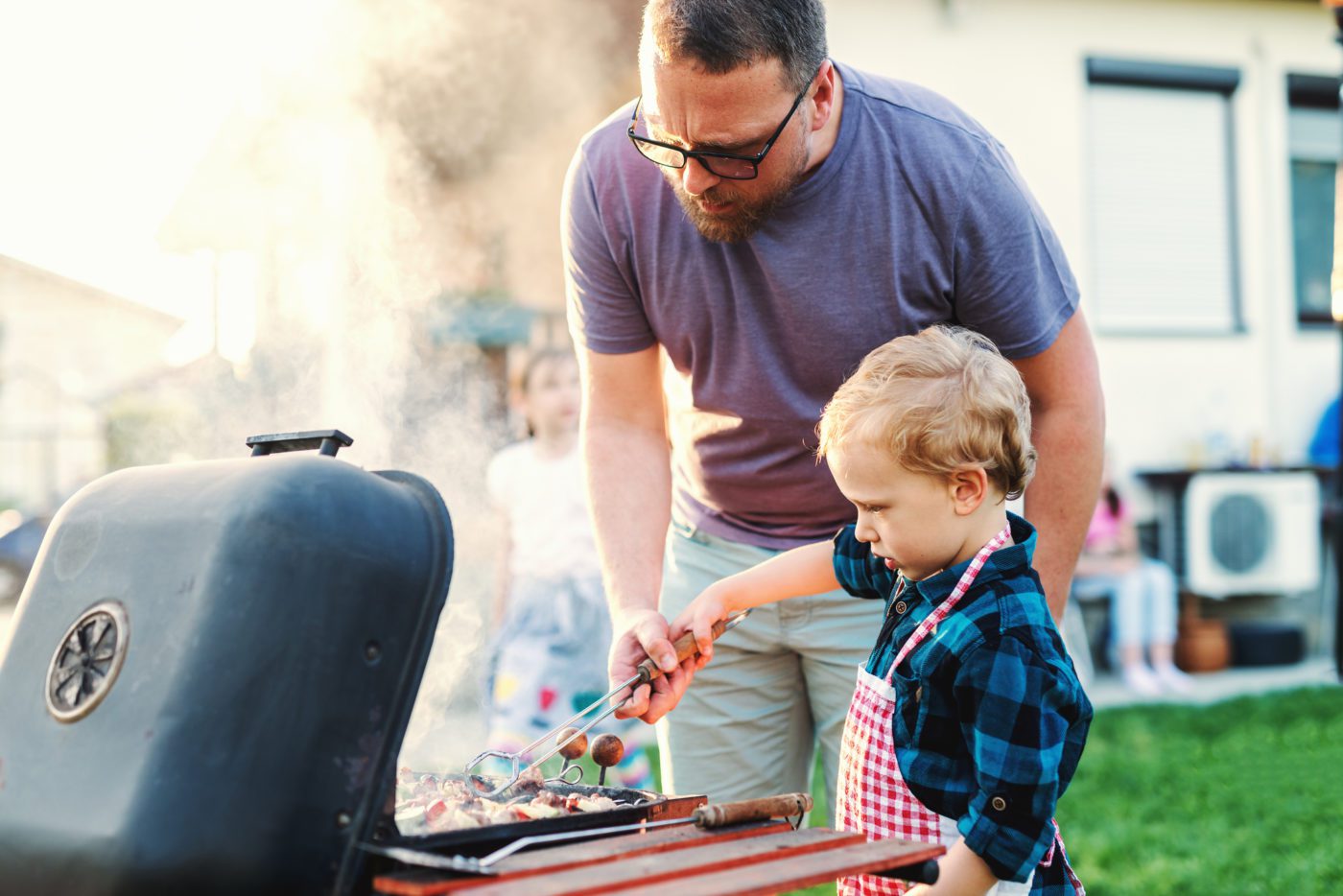How many times have you found yourself suggesting something to your kids only to have them tell you your suggestion is weird? Probably a half dozen just today. You know what “weird” means to your kids, right? It means “things my friends don’t do or wouldn’t find cool.” But how many times has kid groupthink been a successful barometer for what is good?
Exactly. In light of that, here are 5 weird things you should do with your kids.
1. Eat dinner with them.
Very few of us do this anymore. In fact, according to a survey by the Robert Wood Johnson Foundation, over 46% of people admitted that regularly eating together as a family is difficult to do. You know what that means? It means eating dinner together is weird. However, there is a host of reasons why eating together is also important. This includes strengthening your relationships as a family and promoting healthy habits in your kids. For more ideas on how to do this well, check out these tips.
2. Limit screen time.
The average child spends more than seven hours a day looking at screens. What do we do about it? Set limits. I know—weird. But if you really don’t want your child on a device for seven hours a day, you’ve got few options. You’ve got to be the one who teaches your child how to prioritize real, physical, embodied experience over virtual reality.
I have friends who have baskets at their front door. Their kids’ friends’ phones go in the basket when they arrive and don’t come out until they leave. Other friends simply set their kids’ devices to lock them out automatically after a certain period of time. And still others have certain screen-free times throughout the evening, such as during dinner or for the hour before bedtime. What you do is less critical than that you do something to communicate that there is life away from the screen.
3. Hug your child.
This is easy when your child is really young. Young kids desire physical touch and gladly snuggle or climb up on your lap. However, the older kids get, the more they try to differentiate from you both emotionally and physically. Which, by the way, is incredibly normal, healthy, and necessary. However, that doesn’t mean we should simply wave at our kids from a distance and wait for special occasions like graduation or marriage to show affection physically. Recent studies point to the importance of physical touch in brain development, which doesn’t end once a child becomes a teenager.
So be thoughtful about it. A big hug in front of your teenage son’s buddies might not be the way to go (though it might). But an occasional hug before he heads to bed or after he’s gotten disappointing news or even before he leaves for school can be a powerful tool in communicating love, building self-esteem, and cultivating his understanding of appropriate physical affection.
4. Read with your children.
This isn’t just for little ones. Reading to your children when they are young helps them learn to love reading, but reading together as they get older can be a great way to build family bonds around loved stories and engage in deep conversations. I know families who have read the Harry Potter series out loud together. Some folks read the Bible. Others may read something they’ve found online that’s been particularly helpful. Whatever it is, choosing to take the time to read together can offer a unique and wonderful opportunity for connection, learning, and joy.
5. Develop family rituals.
Life gets so chaotic that we often feel like it just happens to us. We need to develop family rituals—rhythms of life that help us orient ourselves properly as a family. Our family does this each night with a 15- to 30-minute ritual we call High-Low. We simply stop each night prior to bed and have each person share one high (positive experience) from the day and one low (negative experience). It creates space for us to reconnect, listen to each other’s joys and disappointments, and practice gratitude.
Sound off: What other ideas do you have for weird things you can do with your family?











Huddle up with your kids and ask, “What do we do as a family that you think is weird but that you are grateful for?”